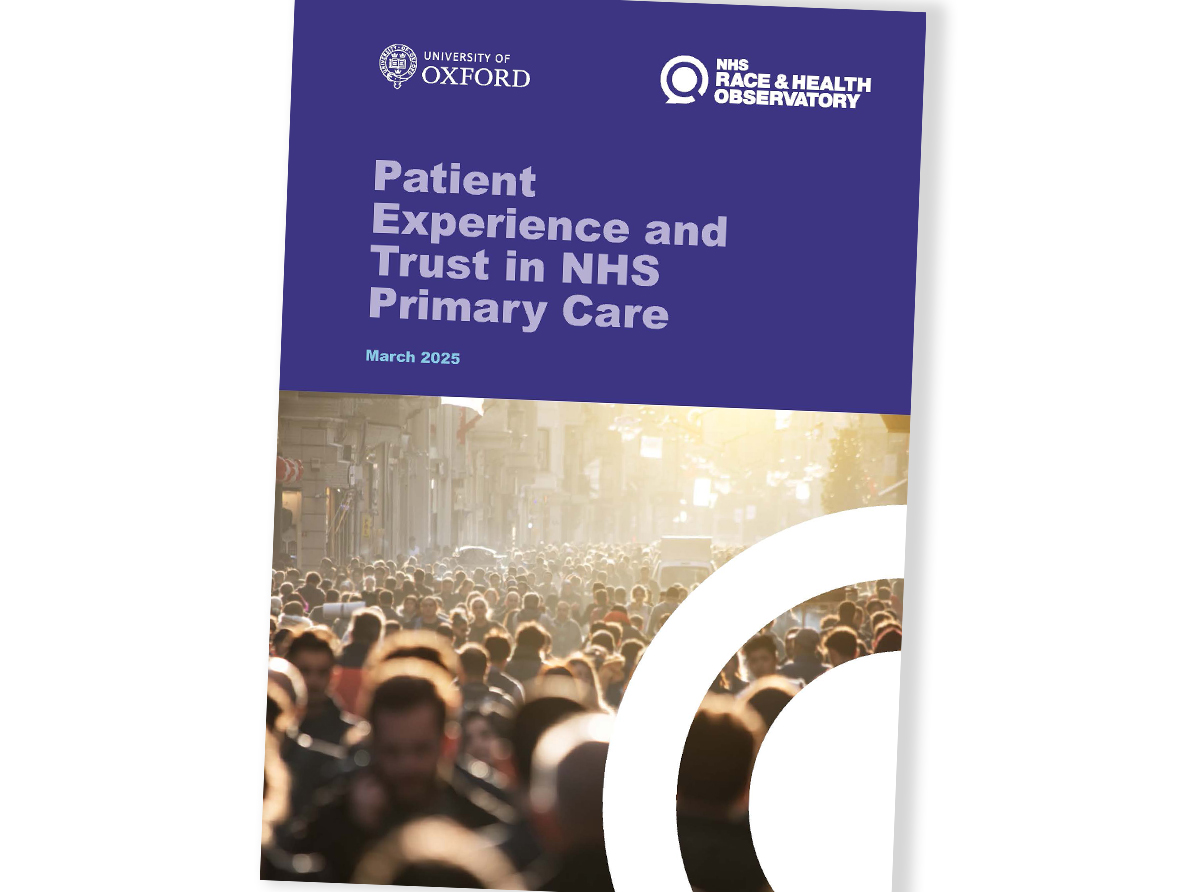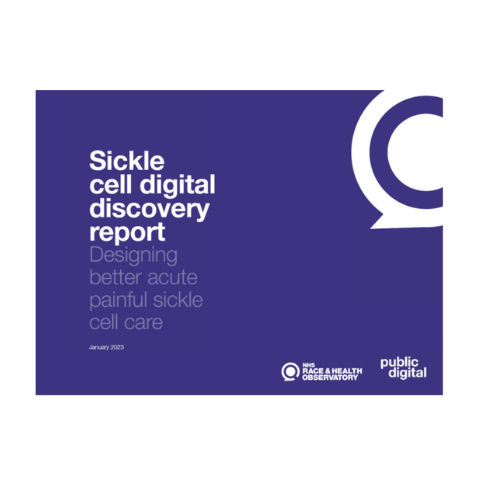
The Cost of Racism
The Cost of Racism is a programme of work exploring the ways in which racism and race inequity lead to significant and avoidable cost to the healthcare service and our economy.
We are committed to drawing upon the best quality evidence about racial and ethnic inequality in health. This means not only commissioning original research to fill knowledge gaps, but also synthesising and mobilising existing evidence.

The Cost of Racism is a programme of work exploring the ways in which racism and race inequity lead to significant and avoidable cost to the healthcare service and our economy.

A recent parliamentary inquiry into avoidable deaths and failures of care for sickle cell patients in secondary care identified that too often acute painful sickle episodes are poorly managed by the NHS. It recommended that the NHS Race and Health Observatory (NHSRHO) undertake a study into sickle cell care in relation to race and ethnicity.

Insights from a survey into the levels of trust that Black, Asian and ethnic minority patients have with NHS primary care service providers reveal high levels of mistrust.

The scope of this work is to provide insights that will help to promote effective and respectful communication with ethnic minority women and pregnant people.

Trauma informed care has been increasingly explored within services over recent years both in health and social care, as well as criminal justice. Broadly speaking, a trauma-informed approach to care can be described as one which ‘aims to provide an environment where a person who has experienced trauma feels safe and can develop trust’.

This report sets out to understand the broad availability of digital products and services that currently exist. The report explores the range of technology that is in place for Accident and Emergency clinicians, red-cell specialists, and ambulance care, to aid timely support to sufferers on their emergency hospital arrival.

TPXimpact was commissioned by the NHS Race & Health Observatory to deliver research that can shape future digital health recommendations to reduce ethnic inequality in the usage of healthcare apps such as the NHS App.

This review aimed to identify existing policy interventions designed to tackle ethnic health inequalities in maternal and neonatal health in England.

This report, produced in partnership with the University of Leicester, the University of Nottingham, and UCL, presents the first six-monthly update on the REACH-OUT programme, outlining the rationale and methodology that will drive the work.

The Covid-19 pandemic has resulted in a large fall in hospital activity such as consultations, scans, tests and operations across England leading to a huge backlog in routine hospital care with an estimated seven million patients waiting to begin hospital treatment. The report outlines how people from Asian groups, in particular, experienced a much larger fall in planned hospital care during the pandemic than people from White, Black or Mixed ethnic groups.

Pharmacogenomics is the study of how genetic variation affects responses to drugs. This includes both the efficacy and safety of drugs.

The Observatory has published its much anticipated rapid review into ethnic health inequalities across a range of areas including key priorities set by the independent health body. Ethnic inequalities in access to, experiences of, and outcomes of healthcare are longstanding problems in the NHS, and are rooted in experiences of structural, institutional and interpersonal racism. This report is the first of its kind to analyse the overwhelming evidence of ethnic health inequality through the lens of racism.

This report draws on a longer study we commissioned from The King’s Fund (Chauhan et al 2021).